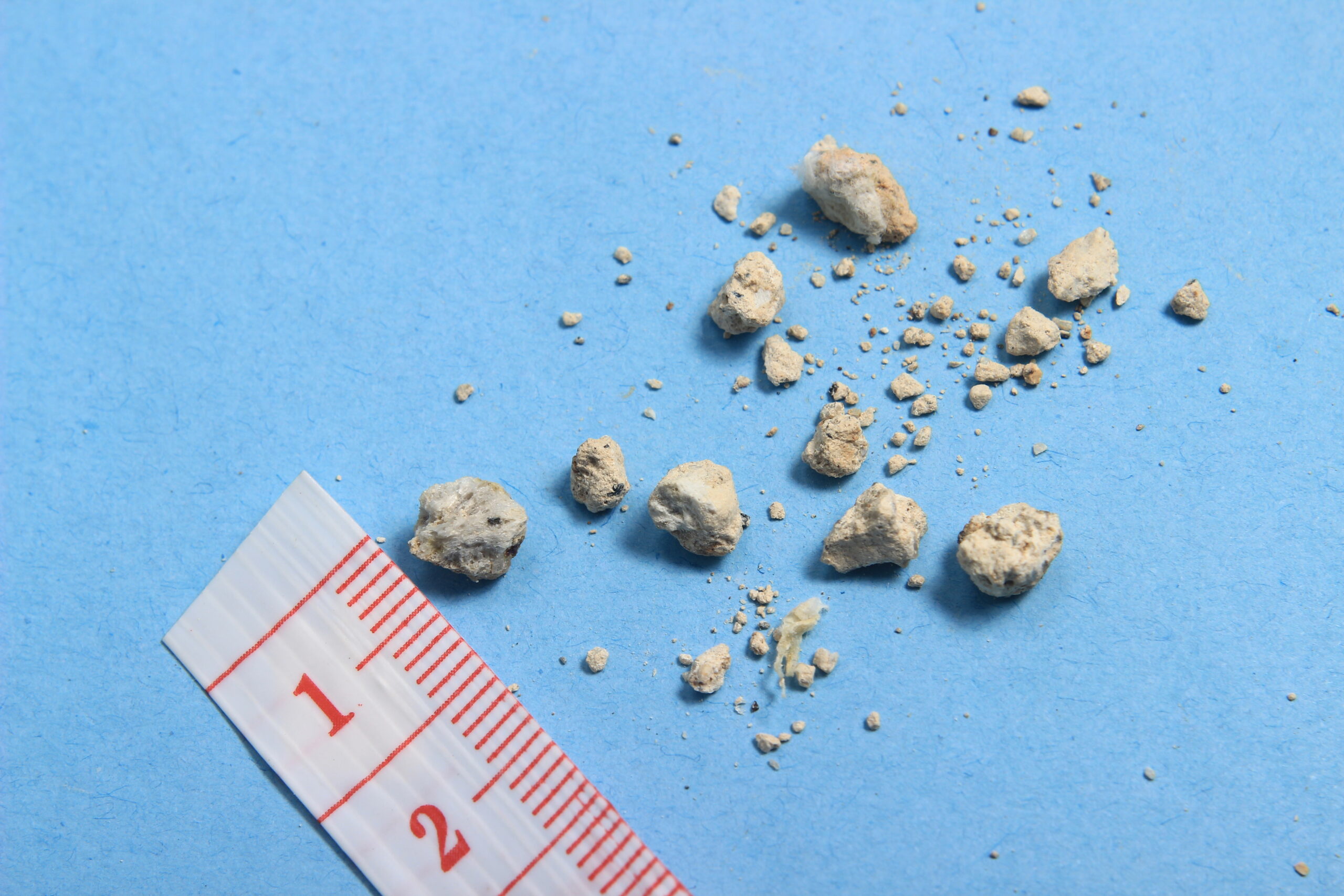





No lab centers are available in this city

Kidney stones comprise of hard deposits made up of minerals and salts that form inside the kidneys. Nephrolithiasis, renal calculi, or urolithiasis are some of other names for it. Common symptoms of kidney stones are pain in your back or side, blood in your urine, and nausea/vomiting alongside the pain. Although kidney stones typically range in size from chickpea to a golf ball, they can also be as little as a grain of sand. Smaller stones can pass through the urinary tract, but surgery is required for the bigger ones.
Kidney stone is an irregularly formed solid mass or crystal that can range in size from a grain of sand to a golf ball. Depending on how big they are, you might not even be aware that you have a kidney stone (or stones). Even smaller stones could cause quite a pain as they travel through the urinary tract while leaving the body. It could take up to three weeks, however, drinking fluids could help speed up the procedure.
A large kidney stone could get trapped in your ureter. The tube that drains urine from the kidney down to the bladder is called the ureter. The kidney stone may cause bleeding and prevent urine from leaving your body. A stone that cannot pass on its own might deem a surgery as necessary.
A condition like kidney stones is common in people with diabetes or obesity. Cystinuria (A hereditary disorder) can also result in kidney stones.
People with smaller kidney stones that stay in the kidney may not experience any symptoms. Before the stone enters your ureter, the tube via which urine passes from your kidney to your bladder, you may not sense anything is wrong. If the stone is tiny enough, it will pass through your urethra and bladder before leaving your body through your pee. The smaller the stone, the more likely it’s to pass on its own, and the more quickly the process will happen.
According to research, almost one in ten people will have kidney stones at some point in their lives. Kidney stones are much less common in children than in adults, but they happen for the same reasons. Children with asthma are four times more likely than children without asthma to experience them.
Ages 20 to 50 are when kidney stones are most likely to develop.
There are several factors that are possible for developing kidney stones in the body like obesity, drinking too little water, weight loss surgery, or eating food with too much salt or sugar. Family history & infections play a significant role in certain people. Fructose consumption in excess amounts is associated with a greater probability of kidney stone formation. Table sugar & High fructose corn syrup both include fructose.
If your kidney stone is small in size, you might not experience any symptoms as it goes through your urinary system. But you'll probably have some symptoms if your kidney stone is bigger.
5 common symptoms of kidney stones are listed below.
1. Pain in the back, belly, or side
One of the worst sorts of pain imaginable is kidney stone pain, sometimes referred to as renal colic. Some kidney stone sufferers liken the pain to giving birth or being stabbed with a knife.
2. Pain or burning during urination
Once the stone passes the ureter-bladder junction, a person may begin to experience pain during urination. The doctor could diagnose you with dysuria in this situation.
The pain during this pass will be sharp or burning. Sometimes if people do not know about the kidney stone, they mistake it for UTI.
3. Frequent Urination
Another indication that the stone has traveled into the lower part of your urinary tract is the need to use the bathroom for frequent urine or more urgently than normal. Throughout the day and night, you can find yourself continuously needing to use the bathroom
4. Blood in the urine
Blood in the urine is one of the most typical symptoms of kidney stones. A different name for this condition is Hematuria. Blood may be red, pink, or brown in color. Sometimes the doctor can test your urine to analyse the presence of blood cells in urine.
5. Cloudy or smelly urine
Healthy urine is clear and smells mild. Urine that is cloudy or smells bad may indicate that you have an infection in your kidneys or another part of your urinary tract.
 Allergy Test
Allergy Test
 Anemia Test
Anemia Test
 Auto immune
Auto immune
 Blood disorder
Blood disorder
 Bone and Joint
Bone and Joint
 Cancer Test
Cancer Test
 Cardiology Test
Cardiology Test
 Covid Recovery
Covid Recovery
 Dengue Test
Dengue Test
 Depression
Depression
 Diabetes Test
Diabetes Test
 Fatigue
Fatigue
 Fever Test
Fever Test
 Full body
Full body
 Gastro Test
Gastro Test
 Gastrointestinal
Gastrointestinal
 Gynaecology Test
Gynaecology Test
 Heart Test
Heart Test
 HIV Test
HIV Test
 Hormone Test
Hormone Test
 Hypertension
Hypertension
 Immunity Test
Immunity Test
 Infectious Disease
Infectious Disease
 Infertility Test
Infertility Test
 Influenza Test
Influenza Test
 Iron Test
Iron Test
 Kidney Test
Kidney Test
 Liver Test
Liver Test
 Lung Test
Lung Test
 Nephrology
Nephrology
 Obesity
Obesity
 Orthopedics Test
Orthopedics Test
 Physician
Physician
 Pollution Health Checkup
Pollution Health Checkup
 Pregnancy Test
Pregnancy Test
 Prostate Test
Prostate Test
 Senior Citizen Test
Senior Citizen Test
 STD Test
STD Test
 Thyroid Test
Thyroid Test
 Tuberculosis Test
Tuberculosis Test
 Vitamin Test
Vitamin Test
 Women Health Test
Women Health Test
Sign up takes less than 60 secs and gives you access to your offers, orders and lab tests.
Looks like you are not registered with us. Please Sign up to proceed
OTP will be sent to this number by SMS
We have successfully received your details. One of the agents will call you back soon.
 To reach our help desk call 9213188888
To reach our help desk call 9213188888
No Lab Centers are available in this city
Looks like you are not registered with us. Please Sign up to proceed
OTP will be sent to this number by SMS
Not Registered Yet? Signup now.Looks like you are not registered with us. Please Sign up to proceed





 7982100200
7982100200.png)